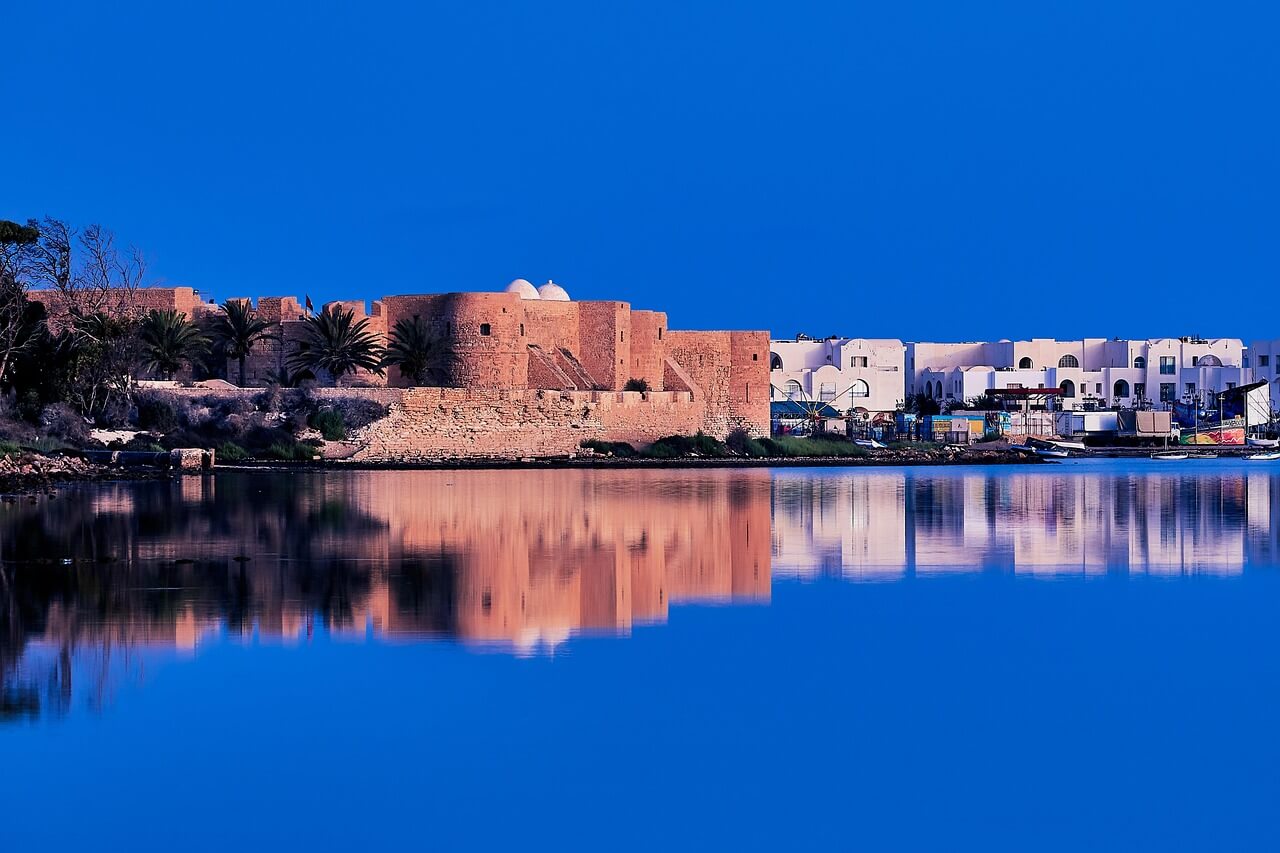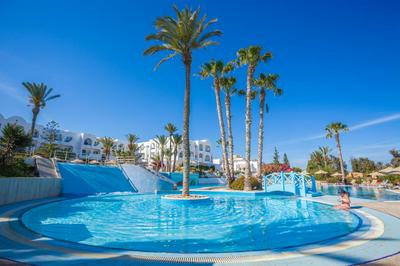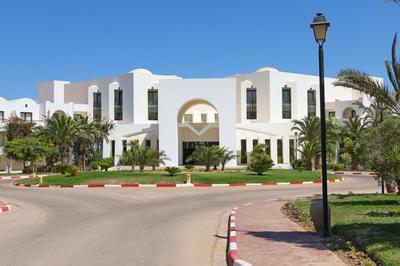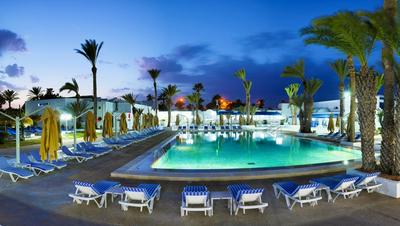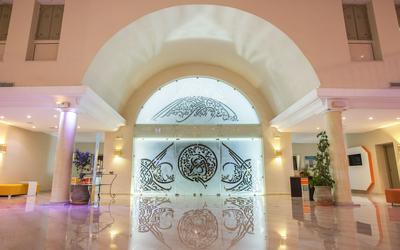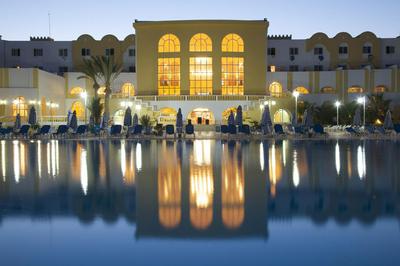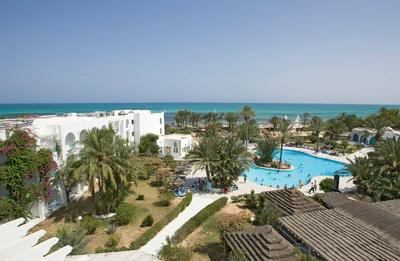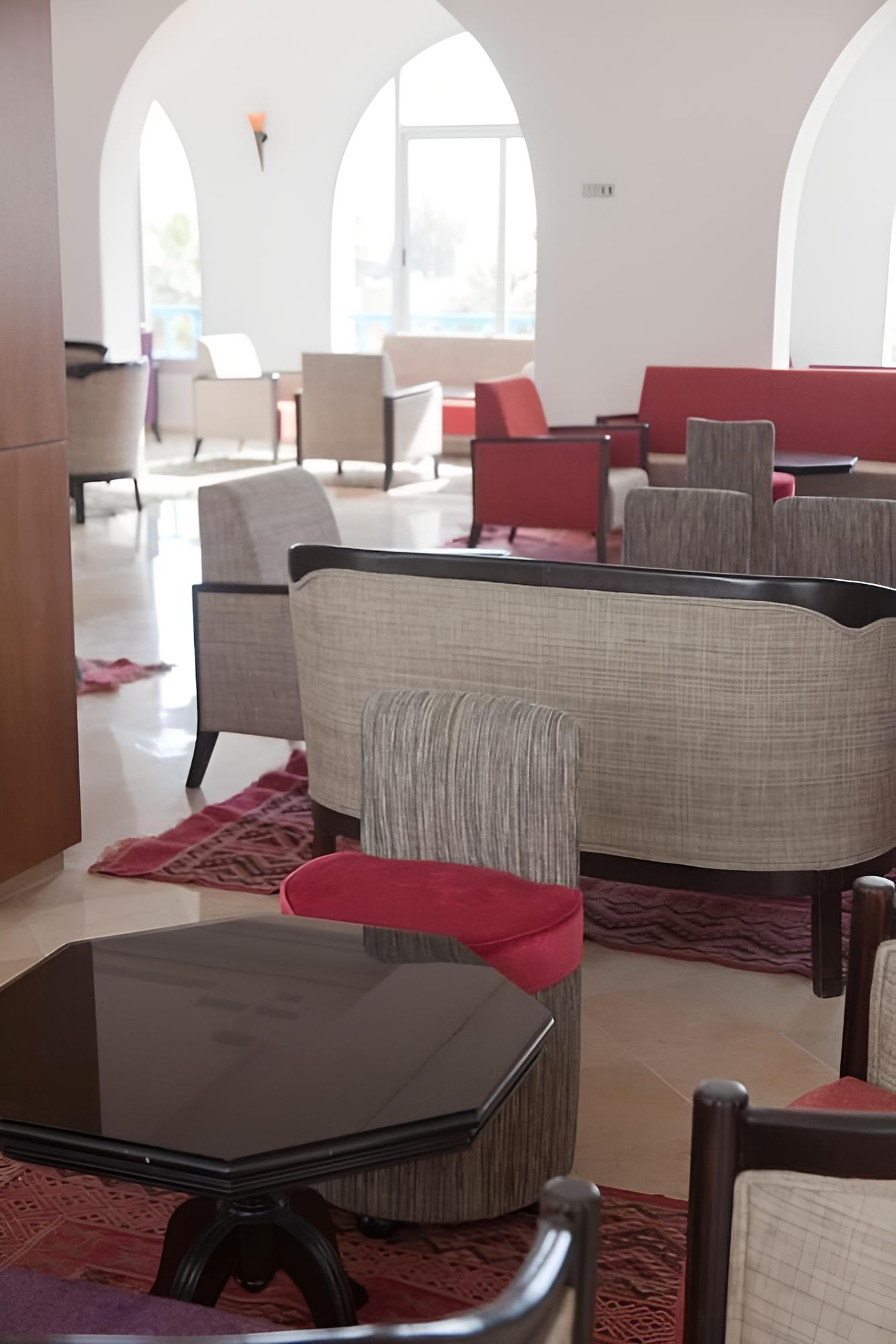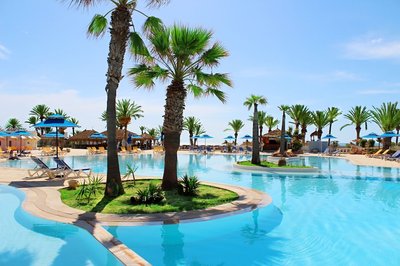When to visit Djerba?
Djerba, known as the 'island of dreams', offers a delightful Mediterranean climate, characterized by hot summers and mild winters. The ideal times to visit Djerba are during spring (March to May) and autumn (September to November) when temperatures are pleasantly warm, averaging between 20°C to 30°C (68°F to 86°F).
Summer (June to August) sees the hottest weather, with temperatures soaring above 30°C (86°F) and occasional heatwaves, making it perfect for beach lovers. Yet, the intense sun can be overwhelming, especially in July and August. Late-night outings and enjoying water sports are great choices during this season.
Winter (December to February) is mild, with daytime temperatures around 15°C to 20°C (59°F to 68°F). This season sees fewer crowds, which can be a positive for those seeking a more tranquil experience. However, evenings can be chilly, so warm clothes might be necessary for nighttime activities. Overall, visiting in spring or autumn ensures a vibrant experience, with local events and pleasant weather.
How to get to Djerba?
Reaching Djerba is relatively straightforward, making it an accessible destination for travelers. The main gateway is Djerba-Zarzis International Airport (DJE), located approximately 10 kilometers (6 miles) from the island’s capital, Houmt Souk. The airport serves various European and local airlines, establishing good connections from major cities.
For those arriving by land, buses frequently operate from Tunis and other significant cities, taking around 7 hours to reach Djerba. The island can also be accessed via ferry from the Tunisian mainland at the port of Ajim, which offers a scenic journey lasting roughly 1.5 hours. Those who prefer driving will find Djerba connected by a network of well-maintained roads. Renting a car is a popular option, allowing for greater exploration of the island and its surroundings.
Tourist activities in Djerba
Djerba offers a rich tapestry of activities for visitors seeking adventure, culture, and relaxation. You can spend your day lounging on the beautiful beaches with clear, turquoise waters or enjoy water sports like windsurfing and snorkeling. The island's unique landscape is peppered with palm trees and olive groves, offering picturesque spots for leisurely strolls.
Cultural enthusiasts can explore traditional architecture in the charming medina of Houmt Souk, visit ancient synagogues like El Ghriba, and admire the local art scene, including pottery at the Djerba Pottery Workshops. For families, the Djerba Explore Park is a must-visit, featuring a crocodile farm and an interactive experience with the island's culture and history.
Evenings in Djerba are lively, with numerous cafes and restaurants serving local delicacies. The blend of old-world charm and modern amenities makes Djerba an exciting destination for both day and night activities.
Events and festivals
Djerba is home to several vibrant events and festivals throughout the year that showcase its rich cultural heritage and traditions. One of the most notable is the annual Djerba Festival, typically held in late June, featuring local music, dance, and handicrafts. This is a fantastic opportunity to immerse yourself in the island's lively atmosphere.
The Festival of El Ghriba, celebrated in May, is a significant Jewish pilgrimage that attracts thousands. Visitors can partake in the unique celebrations and rituals that highlight Djerba's multicultural society. Additionally, the International Festival of Djerba is held in July, featuring artists from various genres, making it a treat for music lovers.
During Ramadan, the island's streets come alive with evening festivities, while the traditional wedding season in autumn showcases Djerba's unique customs through weddings, food, and music. Mark your calendar for these lively celebrations!
Family and kids activities
Djerba is a wonderful destination for families, offering various activities to keep kids entertained and engaged. The popular Djerba Explore Park is ideal for family outings, featuring a crocodile farm, a museum about Djerba's history, and a simulated Berber village, providing educational fun for all ages.
The island's beaches are also family-friendly, with shallow waters perfect for young children to splash around safely. Many beach clubs offer amenities for families, including sunbeds, umbrellas, and various water sports activities.
Parks like Parc Djerba are great places for kids to enjoy the outdoors and play. Moreover, local markets and festivals allow families to experience cultural traditions through crafts and local cuisine, making Djerba a memorable destination for family adventures.
What to see in Djerba?
Djerba is rich in history and culture, making it a treasure trove of attractions. Top sites include:
- Houmt Souk: The capital town is vibrant, known for its bazaars, restaurants, and beautiful architecture.
- El Ghriba Synagogue: One of the oldest synagogues in the world, it's a symbol of Jewish heritage on the island.
- Djerba Explore: A cultural theme park that features local flora, fauna, and historical exhibits.
- Medina of Houmt Souk: A maze of narrow streets filled with shops selling handcrafted goods and local delicacies.
- Ranch Adada: A unique space offering a glimpse into the island's tranquil countryside and various outdoor activities.
- Guellala Museum: Showcases traditional pottery and artisan crafts from Djerba.
Visiting these attractions will provide an enriching experience and a deeper understanding of Djerba's unique culture.
Accommodation in Djerba
Djerba boasts a diverse range of accommodation options catering to all budgets, from luxurious resorts to cozy guesthouses. Popular areas to stay include Houmt Souk for easy access to local markets and historical sites, and Midoun, known for its sandy beaches and proximity to activities.
Luxury hotels like the Radisson Blu and Iberostar offer stunning ocean views, pools, and full-service amenities. For mid-range options, look into family-run hotels and boutique properties that provide a more personalized experience, often incorporating local Tunisian décor and hospitality.
Budget travelers can find affordable stays at hostels and guesthouses, offering the chance to connect with fellow travelers and enjoy a homey atmosphere. It's advisable to book in advance, especially during peak travel seasons, to secure the best rates and availability.
Important numbers and information
- Emergency Numbers: 19 (Police), 23 (Ambulance), 80 (Fire)
- Tourist Information Centers: Djerba Tourist Office, Houmt Souk
- Main Hospitals: Hôpital de Djerba, Hôpital de Houmt Souk
- Airport Contact: Djerba-Zarzis International Airport: +216 75 650 800
- Public Transport Info: Local buses are available; tickets can be purchased onboard.
- Taxi Apps: Uber and local taxis are recommended; always agree on fares beforehand.
- Currency: Tunisian Dinar (TND); credit cards widely accepted, but cash is handy for local markets.
Where to eat?
Djerba’s culinary scene is a vibrant reflection of its rich culture and heritage. The island is famous for dishes like 'couscous' and 'brik,' a savory pastry often filled with egg or seafood, available at many local eateries. Seafood lovers will revel in the fresh catches available here, with local restaurants transforming daily catches into delightful dishes.
The best areas for eating include the medina, where street food vendors serve up delicious snacks, and the waterfront promenade, dotted with restaurants offering stunning sea views. Average meal prices range from 10 TND ($3) for street food to around 50 TND ($16) in nicer restaurants, making dining in Djerba both affordable and varied.
For a special treat, consider trying a traditional meal in a local family home, often arranged through tour operators, giving you an authentic taste of Tunisian hospitality.
Nightlife – where to go out?
Djerba's nightlife is laid-back and charming, ensuring every evening offers something unique. Most bars and lounges can be found around Houmt Souk and Midoun, where life picks up after sunset. Popular spots include Le Petit Snack, a cozy bar known for its local drinks and friendly atmosphere, and the stylish Djerba Marina Lounge, which offers stunning views and ambient music.
Clubs like Club Djerba draw in lively crowds, hosting mix DJs and themed nights. For a more local experience, visit Le Voilier, situated along the beach, where you can sip cocktails right by the shore.
The vibes are relaxed, and the ambiance is generally friendly, making Djerba a great place to unwind after a day of exploration while enjoying good company.
Transport and taxis
Djerba offers a variety of public transport options to navigate the island easily. Buses are the most economical means, with routes connecting major areas like Houmt Souk and Midoun. Tickets are affordable, costing around 1 TND ($0.30), and are paid directly on board. Expect bus times to vary, so it's best to check local schedules.
Taxis are readily available, with two types: 'taxi collectif' (shared taxis) and private taxis. Collective fares are inexpensive, usually about a few dinars, while private taxis should have agreed fares before starting the journey.
Using apps like Uber isn't commonly available; however, booking through hotel receptions for taxis can offer peace of mind for visitors. Remember to negotiate fares and ensure the taxi has a meter. Safety is generally good, but travel with trusted companies whenever possible.
- Public Bus Fares: ~ 1 TND ($0.30)
- Taxi Fares: Negotiate before the ride
- Apps: Limited availability; ask locals for recommendations
Parking and public garages
Parking in Djerba is generally accessible, with many options available in tourist areas and around towns. On-street parking can be found in Houmt Souk and Midoun, but it is advisable to pay attention to parking signs to avoid fines.
Several public garages offer secure parking, often charging a reasonable daily rate of about 5 TND ($1.50). For those renting cars, it’s helpful to choose accommodations that provide parking facilities or are in proximity to public garages.
Although Djerba is easy to navigate, busy tourist spots can lead to congestion, particularly during high seasons. It’s prudent to arrive early if visiting popular attractions. Always keep your vehicle locked and valuables out of sight to ensure safety.
Surroundings of Djerba?
Djerba boasts stunning surroundings worth exploring, perfect for day trips and excursions. Nearby destinations include:
- Ajim: A charming coastal town known for its scenic beaches and local artisan shops, just a short drive from Djerba.
- Midoun: Renowned for its lively markets and beautiful beaches, it's an excellent spot for shopping and relaxing.
- Guellala: A village famous for its pottery, where visitors can witness artisans at work and shop for handmade crafts.
- Chaffar: Known for its picturesque landscapes and walking trails, ideal for nature lovers and hiking enthusiasts.
- Medenine: A historical town home to the fascinating Ksour, traditional granaries that offer a glimpse into the region's heritage.
These nearby locations present a wonderful opportunity to experience the authenticity of Tunisian culture and natural beauty beyond the island.
